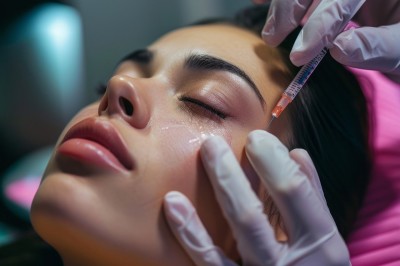Knee Pain Causes And Remedies That You Must Know About
Years of stooping, kneeling and running around certainly takes a toll on your knees, and women have it especially bad: Studies revealed women are up to 6 times more likely than men to suffer from knee injuries such as ACL tears. Got an achy, creaky or weak knee? We will help you find the real cause, plus weve got ways to fix arthritis of the knees from bad to good.
Creaky Knees. Your knees pop, grind and ache while climbing stairs or after a prolonged sitting.
* The Cause: Though it is commonly called "runners knee", patellofemoral syndrome troubles even couch potatoes. The creaking you feel is a result of a misaligned kneecap grating over the lower end of your thighbone. Women are especially prone to this syndrome due to their naturally wide pelvises causes their knees to slant inward, creating a wider quadriceps, or Q, angle than men have. According to expert, this Q angle places extra force on a womans knees.
* The Knee Pain Remedy: If you regularly do high-impact workouts such as running or playing tennis, cut back (but do not stop in general or the muscles that support your knees will weaken) and add gentler activities such as swimming and yoga to your routine. You can also purchase new workout shoes when your shoes soles are worn so that your aches and joints are passably cushioned.
Achy Knees - During physical activity, you feel a sharp pain between your kneecap and shinbone. The pain persists as a constant, dull ache.
* The Cause: Tendonitis, which occurs when the tendons connecting your kneecap to the shinbone become inflamed due to repeated stress and overuse. Symptoms flare up when you increase the frequency or intensity of your workouts.
* The Knee Pain Relief: To alleviate knee pain and reduce swelling, take a nonsteroidal anti-inflammatory drug (NSAID) such as ibuprofen, and ice, rest and elevate your throbbing knee, particularly following a workout. Also, consult your physician about patellar tendon straps, Velcro bands placed just under your kneecap, which alleviate knee pain by taking pressure off the tendon. If knee pain persists or worsens, immediately consult your doctor.
Stiff Knees - Your knee is swollen and puffy, and you have trouble straightening or bending it.
* The Cause: Osteoarthritis. The cartilage that cushions your joints break down because of usage, age or excess weight, and thus makes your body create more joint fluid in the knee. When the cartilage wears down completely, you are left with bone rubbing on bone and painfully swollen joints.
* The Knee Pain Remedy: According to one study, losing just 11 pounds can take pressure off your knees and reduce pain by fifty percent. Additionally, taking NSAIDs, resting and using ice could ease arthritis of the knee. Now, if your knee becomes red or feels warm to the touch, immediately consult your doctor, he or she may drain the excess joint fluid with a needle. Also about twenty-five percent of people with osteoarthritis need knee-replacement surgery.
Twisted Knee. You feel and sometimes hear a "pop," and then your knee buckles, causing intolerable knee pain. This knee injury typically happens while playing sports.
* The Cause: The anterior cruciate ligament (ACL), and elastic band of tissue that stabilizes the knee, tears. Once again, womens Q angle comes into play. According to expert, a womans kneecap pulls slightly to the side when she lands after a jump due to her wider pelvis. As a result, the quadriceps pulls harder on the knee. Experts also speculate that high levels of estrogen (in the latter part of the menstrual cycle) loosen ligaments and weaken their ability to protect joints.
* The Knee Pain Remedy: Consult your physician immediately. About a third of those whose injure their ACL regains strength and motion after 6-8 weeks of rest and physical therapy. So if the kneecap remains unstable, arthroscopic surgery may be needed. And if you play sports, doing exercises that strengthen your hip and butt muscles and practicing proper jumping and landing can decrease your risk of ACL injuries.

































